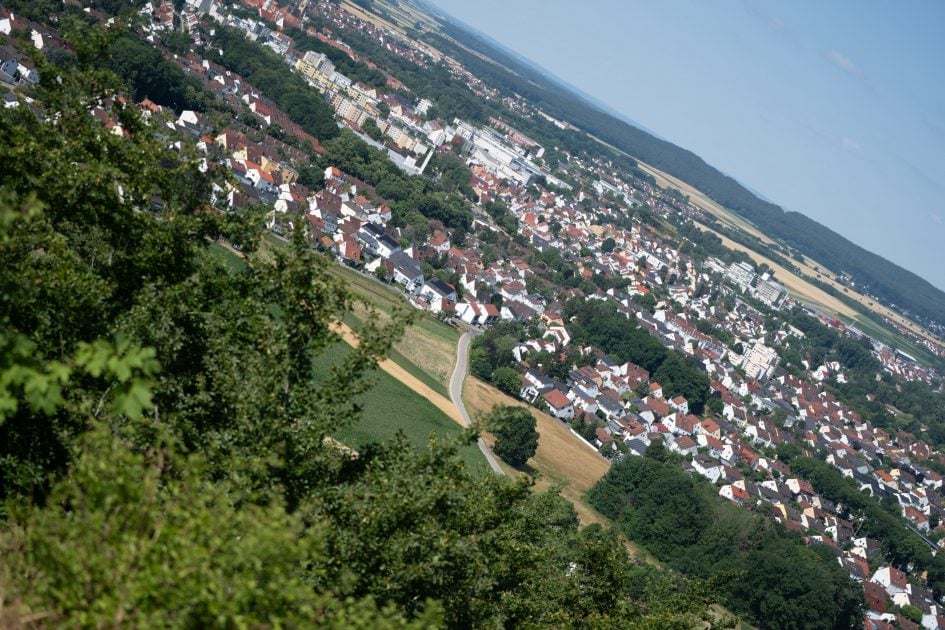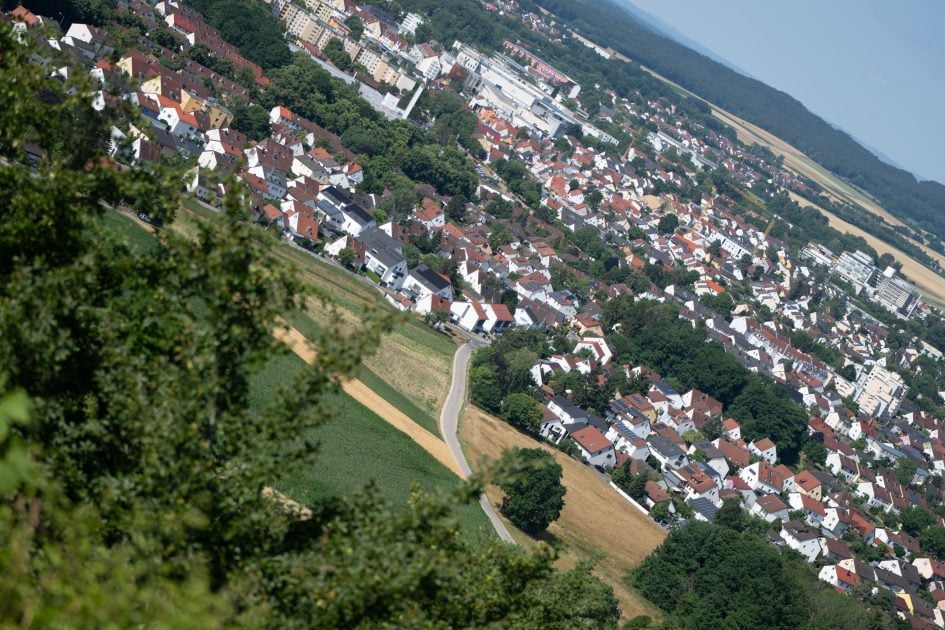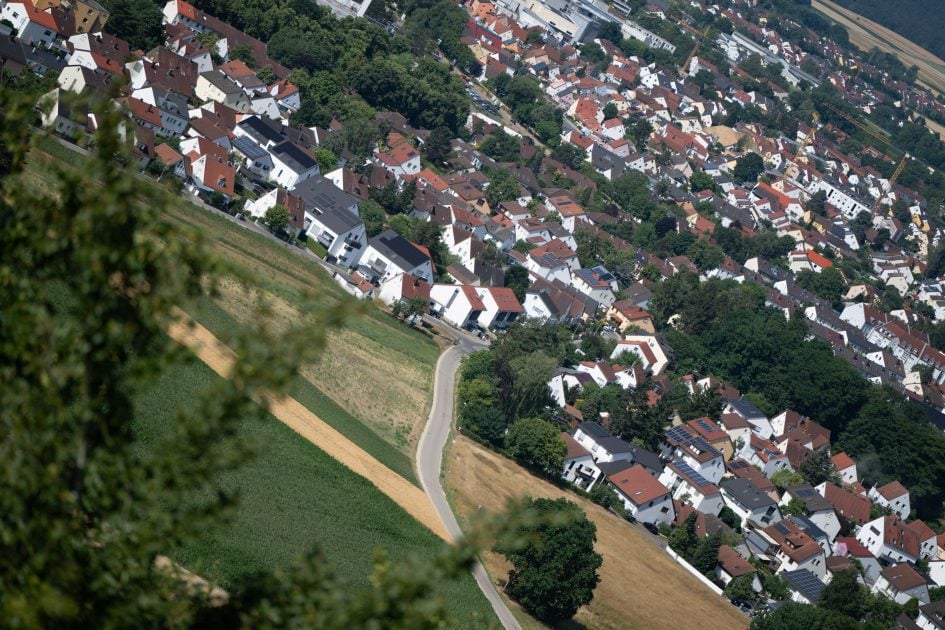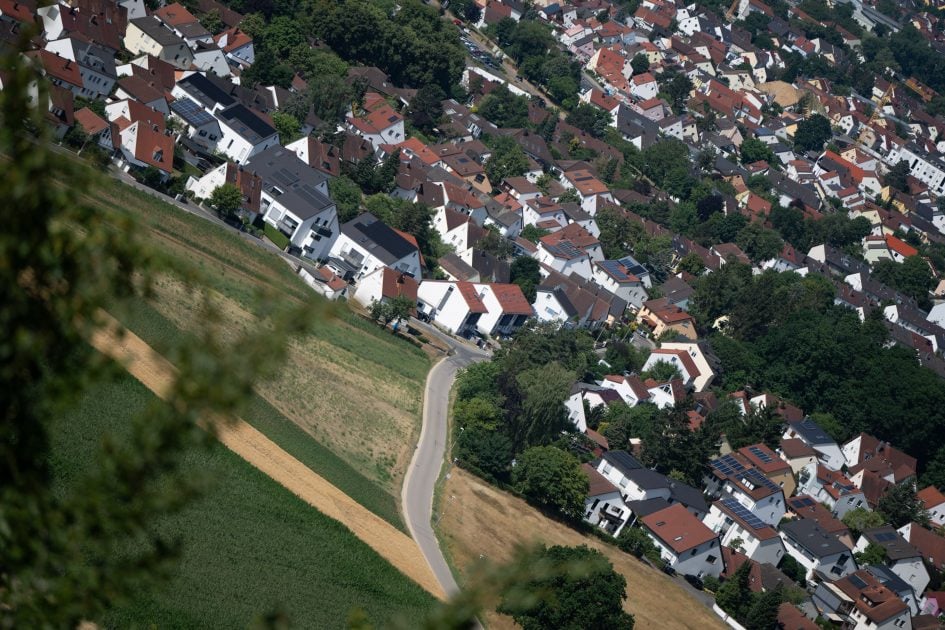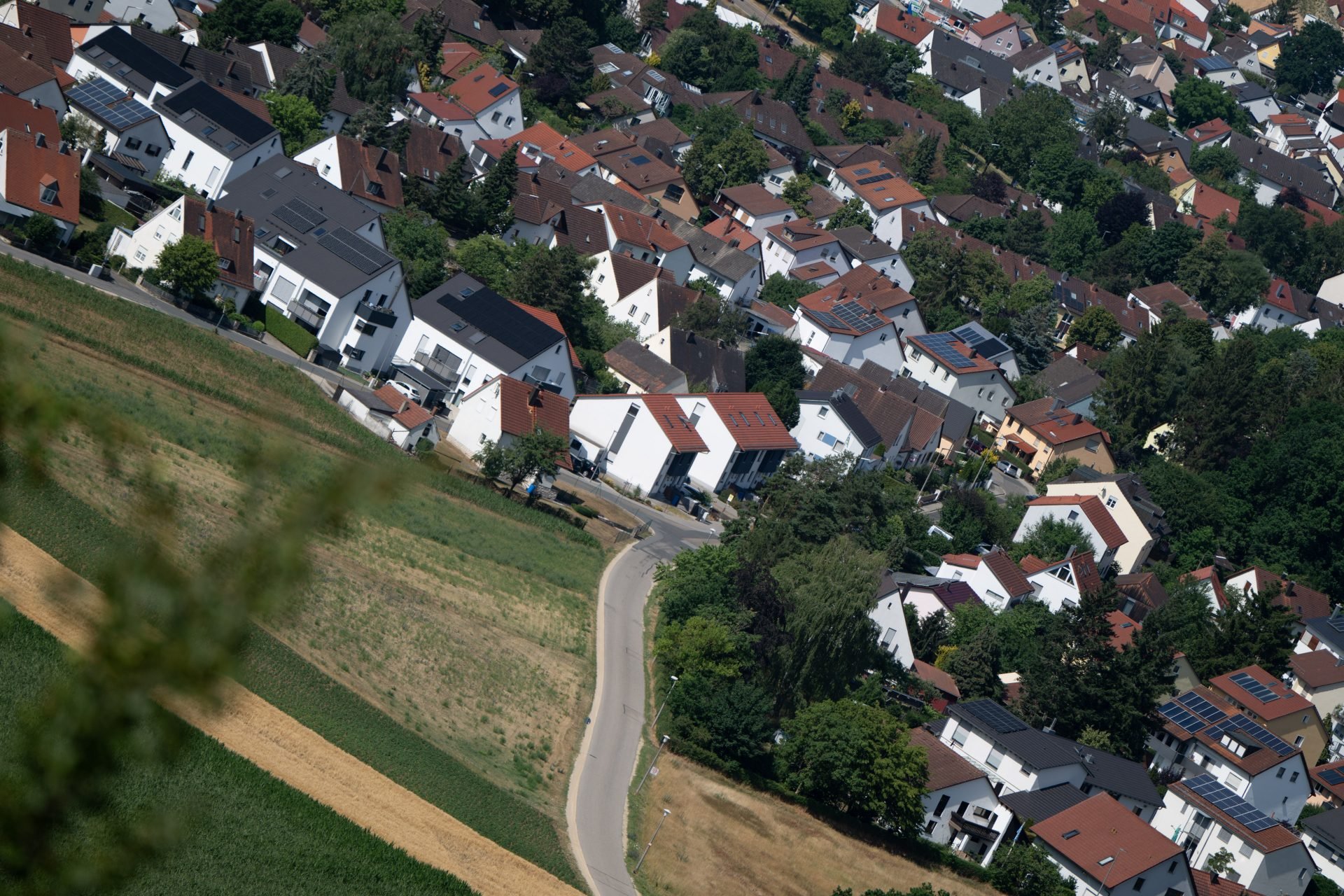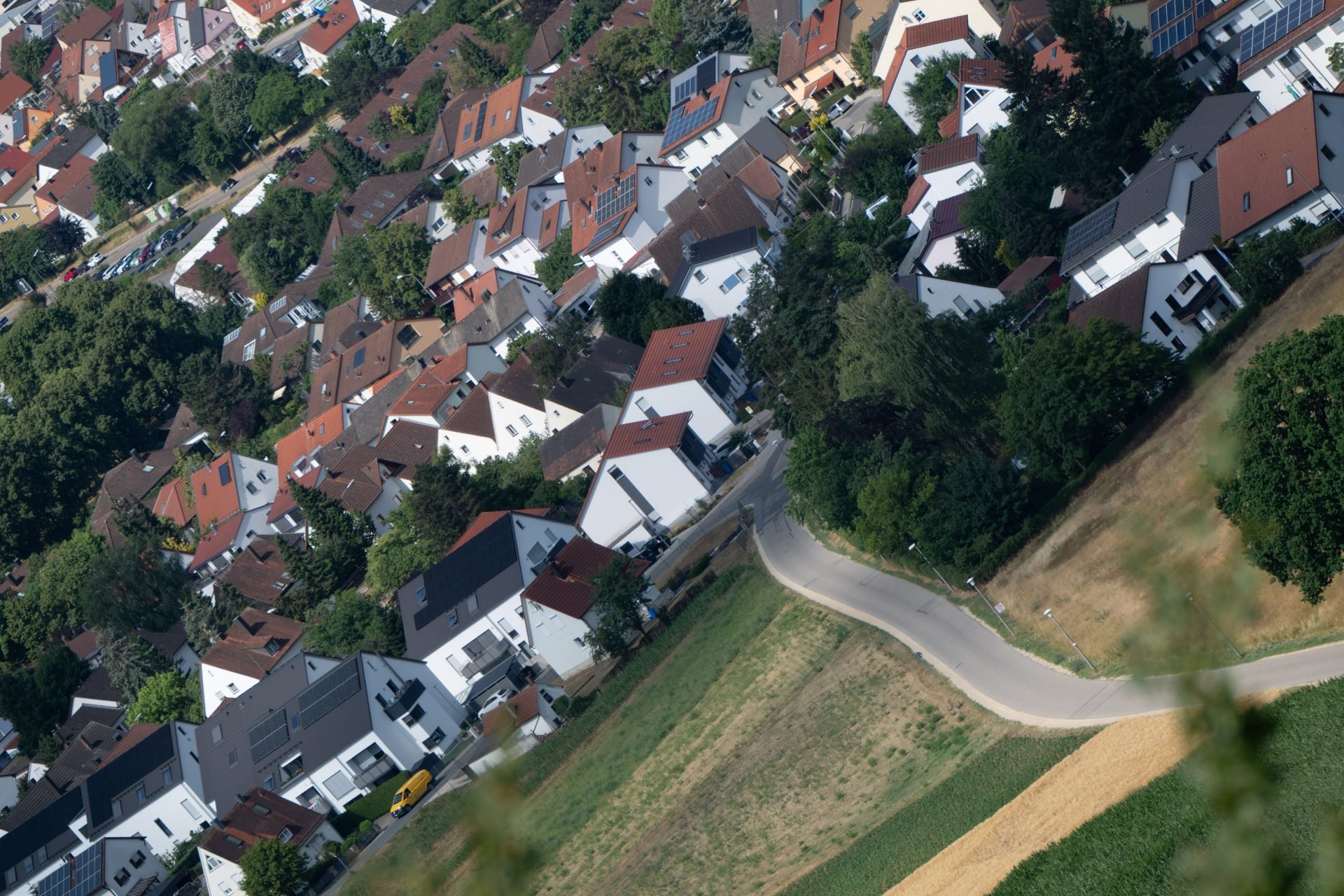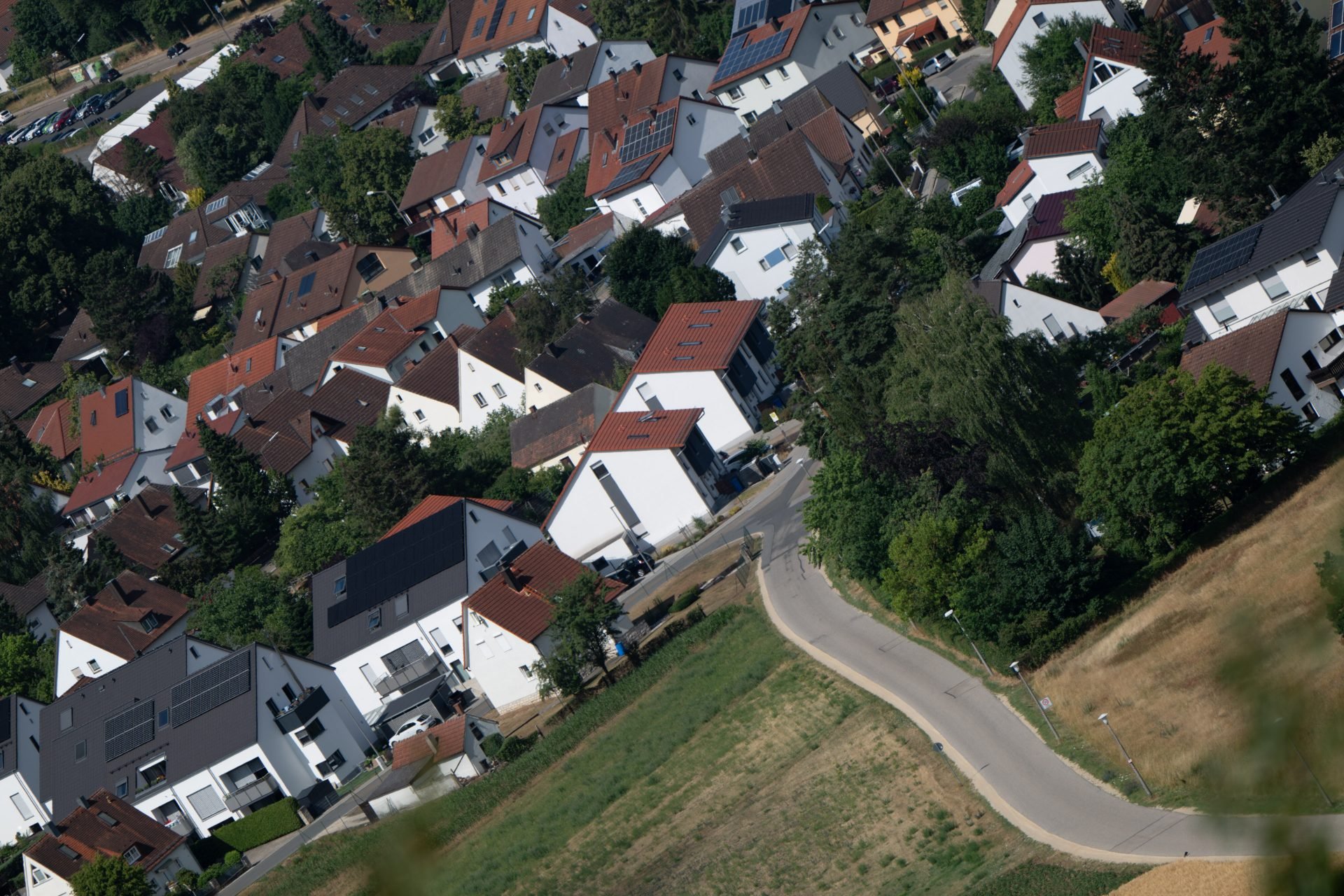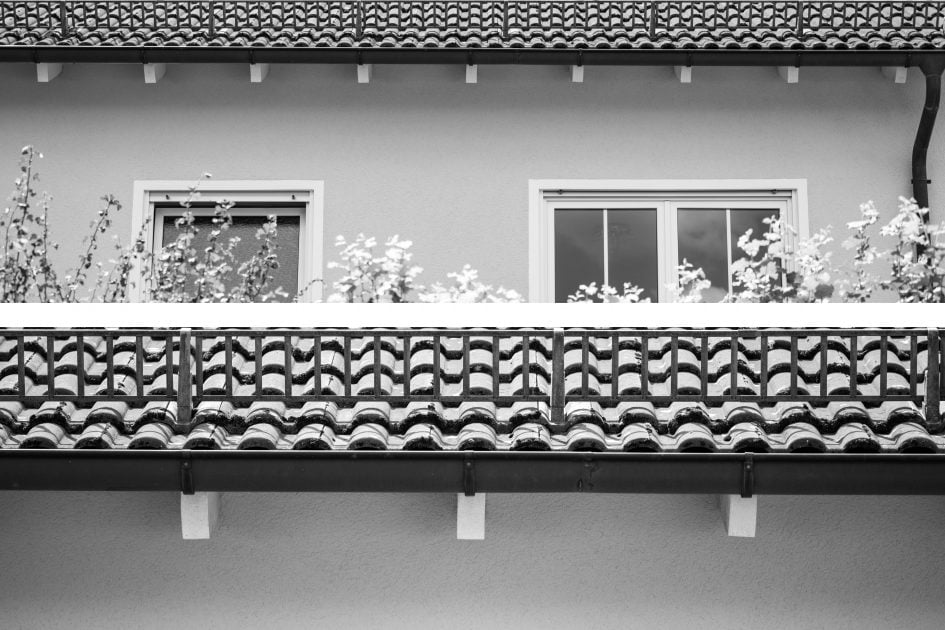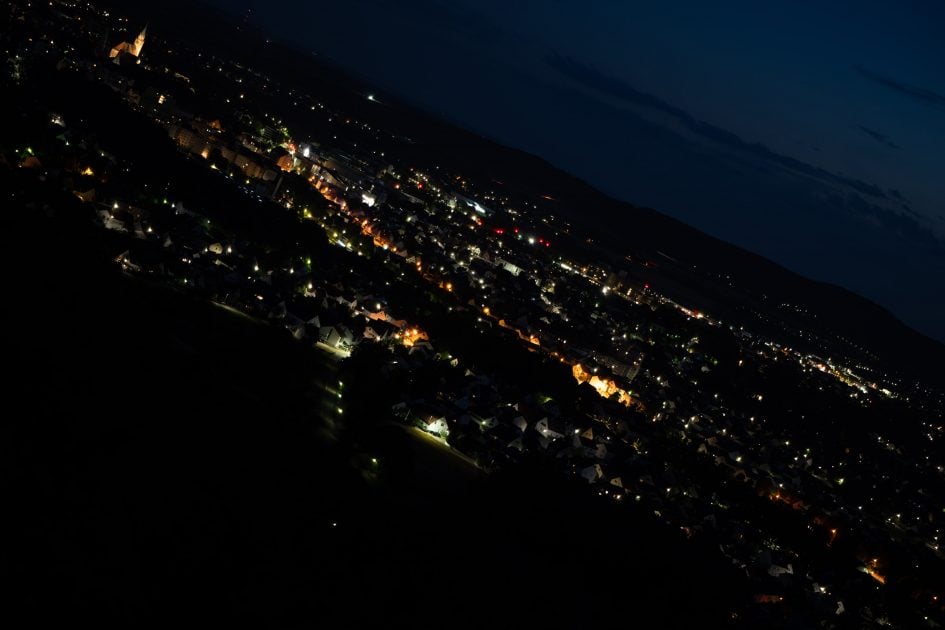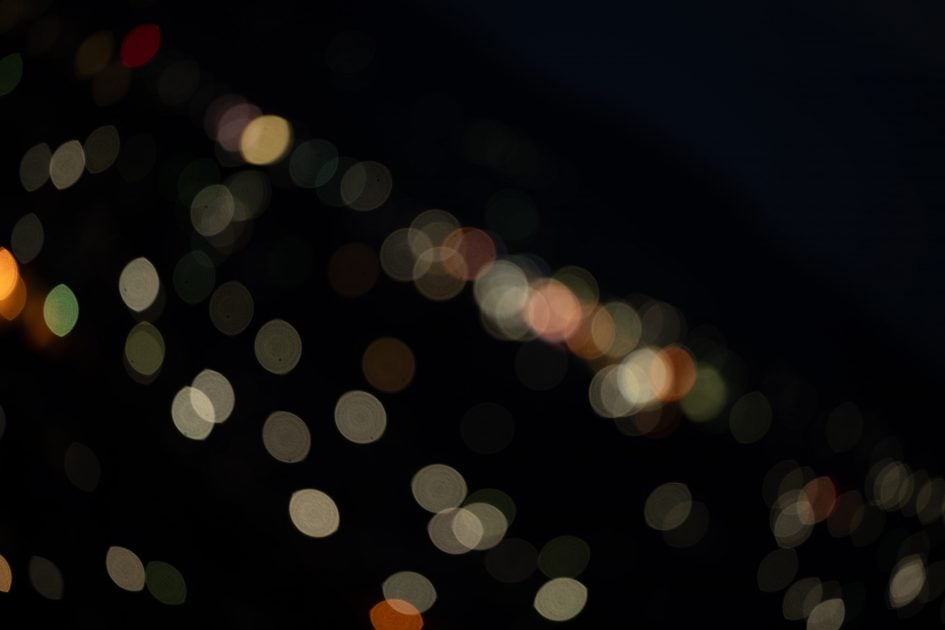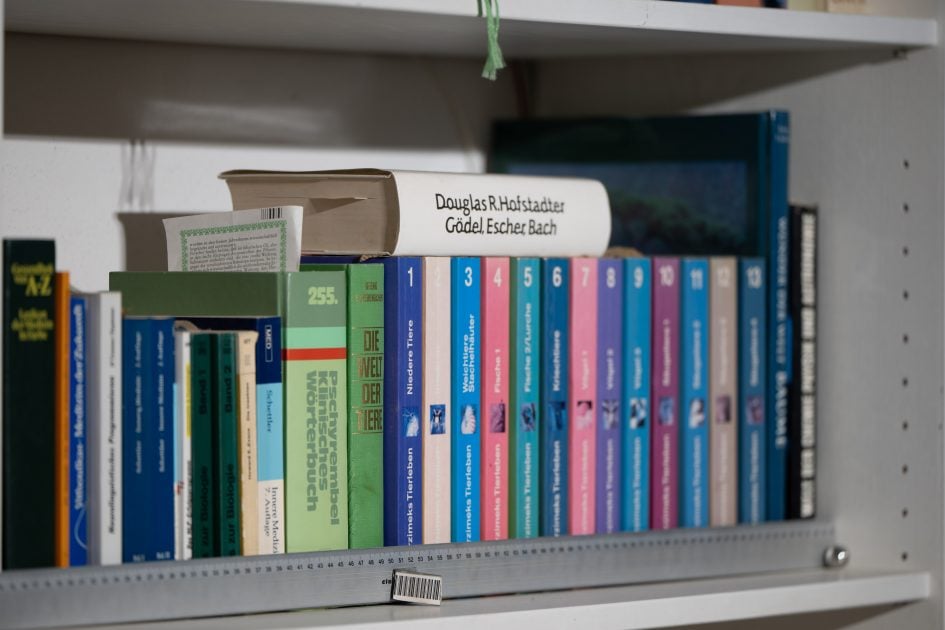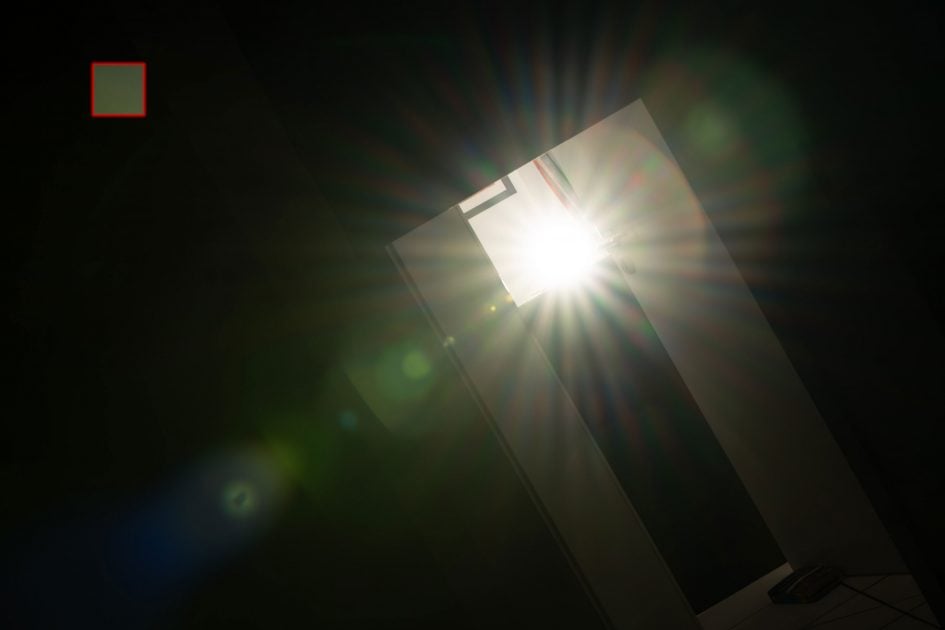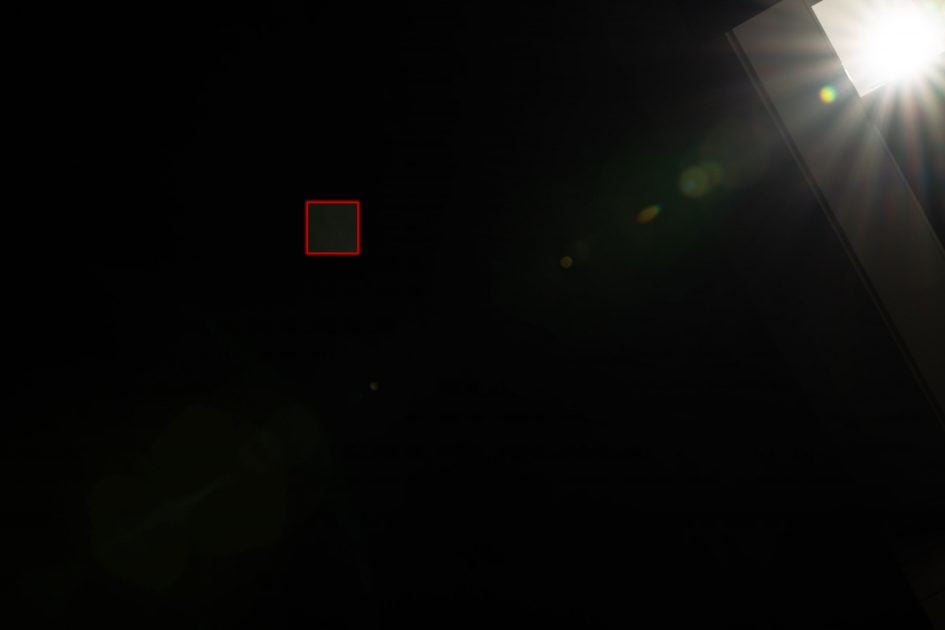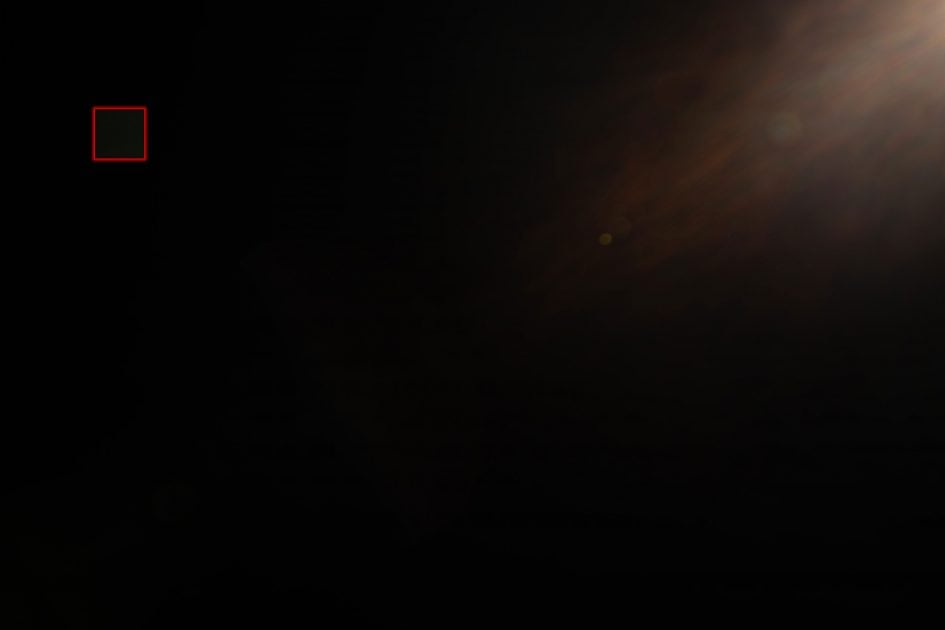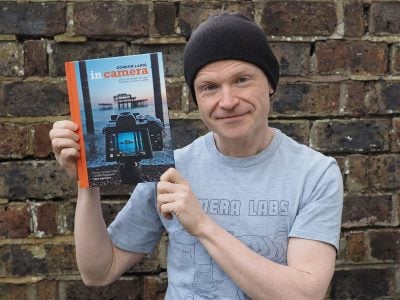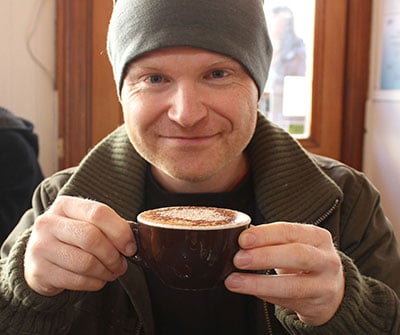Nikon Z 70-180mm f2.8 review
-
-
Written by Thomas
Quality
Longitudinal Chromatic Aberration and focus shift
Lenses with focal ratios of f2.8 or larger are often prone to longitudinal color aberrations (loCA, a.k.a. “axial color” or “bokeh CA”). These normally show up as magenta coloration in the foreground and greenish hues in the background and are not easily corrected in post-processing. The new Z-Nikkor has very little loCA.
Nikon Z 70-180mm f2.8 Longitudinal Chromatic Aberration (loCA) at 180mm
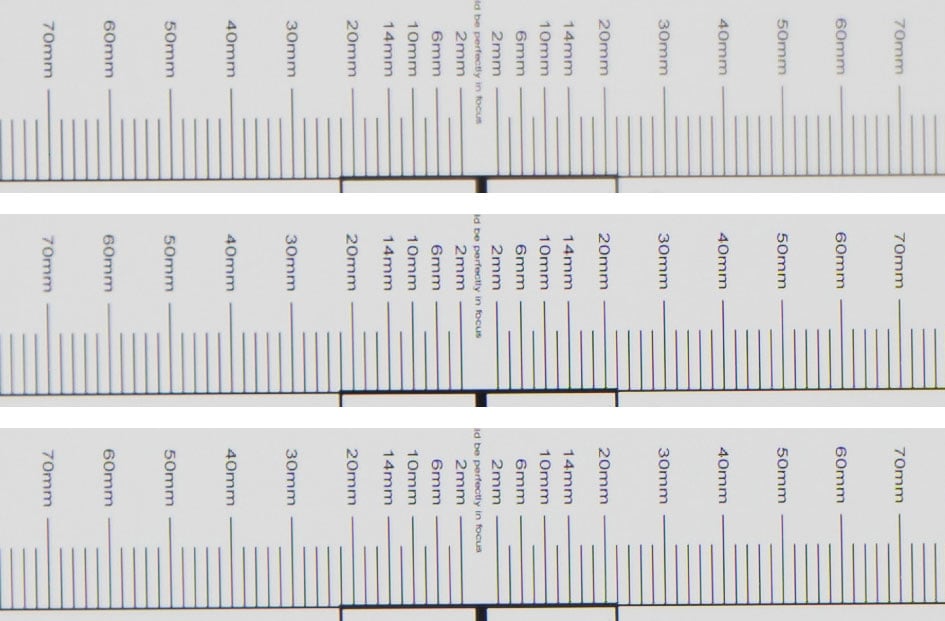
100% crops, from top to bottom: f2.8, f4.0, f5.6; left = foreground, right = background
Even specular highlights show only little coloration as you can see in the shot of a fountain on the next page. Very good! There’s a slight focus shift towards the background. For comparison see the Nikon Z 70-200mm f2.8 VR S here.
The following real life shot shows that the Nikon Z 70-180mm f2.8 produces no purple fringing around high-contrast edges in the focal plane or green outlining around background subjects. But there’s a huge amount of glare eating into the outlines of the subject. The Nikon Z 70-200mm f2.8 VR S is much better in this respect.
Above: Nikon Z 70-180mm f2.8 at 70mm f2.8, 100% crop; click image for 4k version, here for large original
Sharpness and contrast
Let’s have a look at the theoretical performance of the Nikon Z 70-180mm f2.8 (and Tamron 70-180mm f2.8 Di III) first and compare it to the performance of the Nikon Z 70-200mm f2.8 VR S:
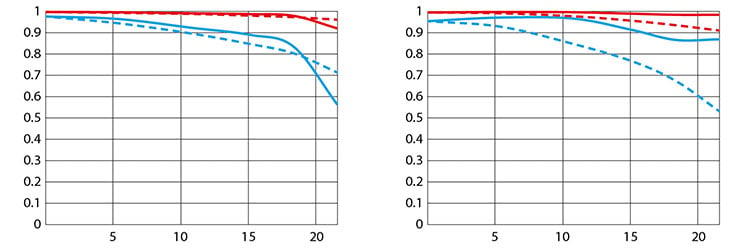
Above: MTF Nikon Z 70-180mm f2.8 at 70mm f2.8 (left), 180mm f2.8 (right)
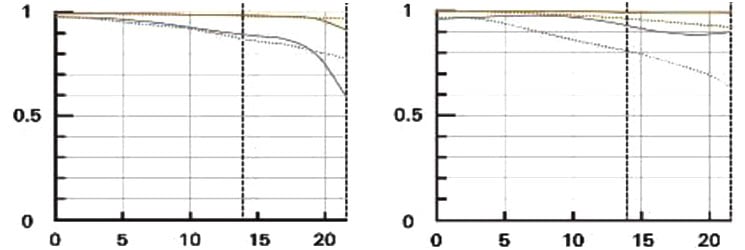
Above: MTF Tamron 70-180mm f2.8 Di III at 70mm f2.8 (left), 180mm f2.8 (right)
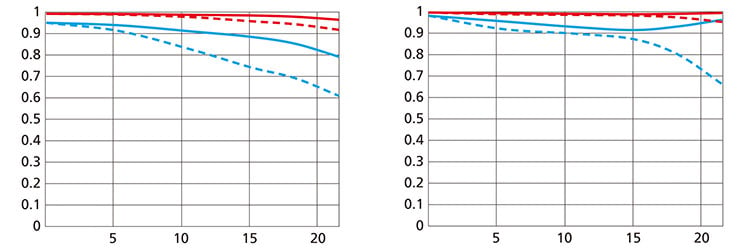
Above: MTF Nikon Z 70-200mm f2.8 VR S at 70mm f2.8 (left), 200mm f2.8 (right)
These MTF charts show the computed lens-performance of lenses wide open without influence of diffraction. Higher values are better (more contrast) and the closer the line-pairs are together the less astigmatism (= resolution depends on the orientation of the test-pattern) the lens has. The x-axis displays the distance from the optical axis (=center of the sensor) in mm. I’ll show you the real-life performance at 4 mm (“center”), 13 mm (DX-corner), and 20 mm (FX-corner) on a 45MP Nikon Z8 camera.
From the charts the Nikon Z 70-180mm f2.8 should show comparable performance to the Z 70-200mm f2.8 VR S with lower astigmatism at 70mm and a bit higher astigmatism at the long end. All-in-all this looks very promising for Nikon’s Z 70-180mm f2.8.
Let’s see how this theoretical performance translates into real life results in the sharpness test based on Siemens-stars shot on a 45MP Nikon Z8. Processing was done in Lightroom 12.4/CRAW 15.4 from RAW to Adobe Color profile with the built-in lens profile compensating CA and vignetting. Noise-reduction is set to 0, sharpening to 50/0.5/36/10, with no extra tone, color, or saturation adjustment. White-balance was adjusted to a neutral white and I did some exposure compensation to make the brightness of all crops match. So you will not see light fall-off in the corners.
The following are all 100% crops!
First up is an overview of the wide-open performance at different focal lengths. You can jump to the detailed results at different apertures and comparisons with the Nikon Z 70-200mm f2.8 VR S by clicking on the crops of the respective focal length.
Nikon Z 70-180mm f2.8; 100% crop from center, DX-corner, FX-corner
Above: 70mm, f2.8
Above: 100mm, f2.8
Above:140mm, f2.8
Above: 180mm, f2.8
Above: with Z TC 1.4x at 200mm, f4.0
Above: with Z TC 1.4x at 250mm, f4.0
Above: with Z TC 2.0x at 280mm, f5.6
Above: with Z TC 2.0x at 360mm, f5.6
Comparison with Tamron 70-180mm f2.8 Di III:
If you take a look at my Tamron 70-180mm f2.8 Di III VXD review, you’ll notice quite a difference in sharpness between both lenses. The following crops show the center shot at 140mm f2.8 from the Nikon Z 70-180mm f2.8 on a 45MP Nikon Z8 developed as usual from RAW/NEF (left), as JPG straight out of camera with picture control set to Standard (middle), and on the right the Tamron 70-180mm f2.8 Di III VXD shot on a 42MP Sony A7R II at 150mm f2.8 developed as usual from RAW/ARW:

As you can see, there is a clear progression in sharpness/contrast from left to right which makes the Nikon look soft compared to the Tamron. Just for the record: The left crop and the right crop were developed from RAW files to identical settings in Lightroom. To explain the differences it would be ideal to have shot the Tamron lens with an ETZ adapter on the Nikon Z8. Any differences in outcome would then be attributable to Sony sensor/filtration/ARW versus Nikon sensor/filtration/NEF. I hope to do this comparison with some future Tamron, Sony, or Sigma lens for E-Mount to get a clear understanding of differences in Sony versus Nikon RAW files – and their development in Adobe’s RAW converter.
But as it stands, I can only surmise that my copy of the Nikon lens is indeed a bit less sharp than the Tamron lens despite both having the same optical formula. One thing is clear though: More aggressive sharpening on the Nikon RAW/NEF-files reduces the differences between both lenses visibly.
Detailed results:
The following 100% crops for each focal length show the Nikon Z 70-180mm f2.8 from wide open down to f11 compared to the Nikon Z 70-200mm f2.8 VR S at 70mm, 100mm, 140mm, 180/200mm, 250mm, 280mm, and 360mm. Or you can fast-forward to the summary for this chapter.
Performance at 70mm:
Nikon Z 70-180mm f2.8 at 70mm; 100% crop from center, DX-corner, FX-corner

Above: Nikon Z 70-180mm f2.8 at 70mm, f2.8

Above: Nikon Z 70-200mm f2.8 VR S at 70mm, f2.8

Above: Nikon Z 70-180mm f2.8 at 70mm, f4.0

Above: Nikon Z 70-180mm f2.8 at 70mm, f5.6; also available at f8.0, f11
Performance at 100mm:
Nikon Z 70-180mm f2.8 at 100mm; 100% crop from center, DX-corner, FX-corner

Above: Nikon Z 70-180mm f2.8 at 100mm, f2.8

Above: Nikon Z 70-200mm f2.8 VR S at 100mm, f2.8

Above: Nikon Z 70-180mm f2.8 at 100mm, f4.0

Above: Nikon Z 70-180mm f2.8 + TC 1.4x at 98mm, f4.0; also available at f5.6, f8.0, f11

Above: Nikon Z 70-180mm f2.8 at 100mm, f5.6; also available at f8.0, f11
Performance at 140mm:
Nikon Z 70-180mm f2.8 at 140mm; 100% crop from center, DX-corner, FX-corner

Above: Nikon Z 70-180mm f2.8 at 140mm, f2.8

Above: Nikon Z 70-200mm f2.8 VR S at 140mm, f2.8

Above: Nikon Z 70-180mm f2.8 at 140mm, f4.0

Above: Nikon Z 70-180mm f2.8 + TC 1.4x at 140mm, f4.0; also available at f5.6, f8.0, f11

Above: Nikon Z 70-180mm f2.8 at 140mm, f5.6; also available at f8.0, f11

Above: Nikon Z 70-180mm f2.8 + TC 2.0x at 140mm, f5.6; also available at f8.0, f11
Performance at 180mm/200mm:
Nikon Z 70-180mm f2.8 at 180mm; 100% crop from center, DX-corner, FX-corner

Above: Nikon Z 70-180mm f2.8 at 180mm, f2.8

Above: Nikon Z 70-200mm f2.8 VR S at 200mm, f2.8

Above: Nikon Z 70-180mm f2.8 at 180mm, f4.0

Above: Nikon Z 70-180mm f2.8 + TC 1.4x at 200mm, f4.0; also available at f5.6, f8.0, f11

Above: Nikon Z 70-180mm f2.8 at 180mm, f5.6; also available at f8.0, f11

Above: Nikon Z 70-180mm f2.8 + TC 2.0x at 200mm, f5.6; also available at f8.0, f11
Performance at 250mm:
Nikon Z 70-180mm f2.8 + TC 1.4x at 250mm; 100% crop from center, DX-corner, FX-corner

Above: Nikon Z 70-180mm f2.8 + TC 1.4x at 250mm, f4.0

Above: Nikon Z 70-200mm f2.8 VR S + TC 1.4x at 280mm, f4.0, also available at f5.6, f8.0, f11

Above: Nikon Z 70-180mm f2.8 + TC 1.4x at 250mm, f5.6

Above: Nikon Z 70-180mm f2.8 + TC 1.4x at 250mm, f8.0; also available at f11
Performance at 280mm:
Nikon Z 70-180mm f2.8 + TC 2.0x at 280mm; 100% crop from center, DX-corner, FX-corner

Above: Nikon Z 70-180mm f2.8 + TC 2.0x at 280mm, f5.6

Above: Nikon Z 70-200mm f2.8 VR S + TC 1.4x at 280mm, f5.6, also available at f4.0, f8.0, f11

Above: Nikon Z 70-180mm f2.8 + TC 2.0x at 280mm, f8.0; also available at f11
Performance at 360mm:
Nikon Z 70-180mm f2.8 + TC 2.0x at 360mm; 100% crop from center, DX-corner, FX-corner

Above: Nikon Z 70-180mm f2.8 + TC 2.0x at 360mm, f5.6

Above: Nikon Z 70-200mm f2.8 + TC 2.0x VR S at 400mm, f5.6

Above: Nikon Z 70-180mm f2.8 + TC 2.0x at 360mm, f8.0; also available at f11
Summary:
Overall Nikon’s 70-180mm f2.8 zoom lens is clearly softer than the much more expensive Nikon Z 70-200mm f2.8 VR S at every focal length – even stopped down to f4.0. Especially the center (at 4mm image height) is a bit of a disappointment although the corners hold up quite well. On a 1.4x teleconverter the Z 70-180mm f2.8 produces usable results with quite some detail – which can be brought out with more aggressive sharpening. But I would hesitate to use the lens with the TC 2.0x especially beyond 200mm focal length. Better to use the TC 1.4x at 250mm and crop if needed.
Performance at long distances
The Siemens-star test-targets are shot at a distance of 45x focal length (i.e. at around 3.2m for 70mm focal length). But performance of lenses also depends on the shooting distance. Therefore, I present another series of images shot on a 45MP Nikon Z8 of a city around 1 km away. Processing was done in Lightroom 12.2/CRAW 15.2 from RAW to Adobe Color profile with the built-in lens profile applied. Noise-reduction is set to 0, sharpening to 50/0.5/36/10, with no extra tone, color, or saturation adjustment. All shots were made from a heavy tripod with image stabilization switched off at ISO 64. As usual I have selected the diagonal that provided the better corner results as the lens was a bit decentered.
Following is an overview of the wide-open performance at different focal lengths. You can jump to the detailed results at different apertures and comparisons with the Nikon Z 70-200mm f2.8 VR S by clicking on the crops of the respective focal length.
Nikon Z 70-180mm f2.8; 100% crop from center, DX-corner, FX-corner
Above: 70mm, f2.8
Above: 100mm, f2.8
Above:140mm, f2.8
Above: 180mm, f2.8
Above: with Z TC 1.4x at 200mm, f4.0
Above: with Z TC 1.4x at 250mm, f4.0
Above: with Z TC 2.0x at 280mm, f5.6
Above: with Z TC 2.0x at 360mm, f5.6
If you want to see all the details and comparisons with the Nikon Z 70-200mm f2.8 VR S, read on. Or fast-forward to the summary for this chapter.
Detailed results:
The following images show the complete scene wide open plus 100% crops from the center, DX-corner, and FX-corner. You can access the large originals but please respect our copyright and only use those images for personal use. For comparison I use the Nikon Z 70-200mm f2.8 VR S shot another day but with similar visibility and atmospheric conditions (including heat shimmer).
Results at 70mm:
Nikon Z 70-180mm f2.8 at 70mm
Above: Nikon Z 70-180mm f2.8 at 70mm, f2.8; click image for 4k version, here for large original; 100% crops also available at f4.0, f5.6, f8.0
Above: Nikon Z 70-200mm f2.8 VR S at 70mm, f2.8; click image for 4k version, here for large original; 100% crops also available at f4.0, f5.6, f8.0
Results at 100mm:
Nikon Z 70-180mm f2.8 at 100mm
Above: Nikon Z 70-180mm f2.8 at 100mm, f2.8; click image for 4k version, here for large original; 100% crops also available at f4.0, f5.6, f8.0
Above: Nikon Z 70-200mm f2.8 VR S at 100mm, f2.8; click image for 4k version, here for large original; 100% crops also available at f4.0, f5.6, f8.0
Above: Nikon Z 70-180mm f2.8 + TC 1.4x at 98mm, f4.0; click image for 4k version, here for large original; 100% crops also available at f5.6, f8.0
Results at 140mm:
Nikon Z 70-180mm f2.8 at 140mm
Above: Nikon Z 70-180mm f2.8 at 140mm, f2.8; click image for 4k version, here for large original; 100% crops also available at f4.0, f5.6, f8.0
Above: Nikon Z 70-200mm f2.8 VR S at 140mm, f2.8; click image for 4k version, here for large original; 100% crops also available at f4.0, f5.6, f8.0
Above: Nikon Z 70-180mm f2.8 + TC 1.4x at 140mm, f4.0; click image for 4k version, here for large original; 100% crops also available at f5.6, f8.0
Above: Nikon Z 70-180mm f2.8 + TC 2.0x at 140mm, f5.6; click image for 4k version, here for large original; 100% crops also available at f8.0
Results at 180mm/200mm:
Nikon Z 70-180mm f2.8 at 180mm
Above: Nikon Z 70-180mm f2.8 at 180mm, f2.8; click image for 4k version, here for large original; 100% crops also available at f4.0, f5.6, f8.0
Above: Nikon Z 70-200mm f2.8 VR S at 200mm, f2.8; click image for 4k version, here for large original; 100% crops also available at f4.0, f5.6, f8.0
Above: Nikon Z 70-180mm f2.8 + TC 1.4x at 200mm, f4.0; click image for 4k version, here for large original; 100% crops also available at f5.6, f8.0
Above: Nikon Z 70-180mm f2.8 + TC 2.0x at 200mm, f5.6; click image for 4k version, here for large original; 100% crops also available at f8.0
Results at 250mm:
Nikon Z 70-180mm f2.8 + TC 1.4x at 250mm
Above: Nikon Z 70-180mm f2.8 + TC 1.4x at 250mm, f4.0; click image for 4k version, here for large original; 100% crops also available at f5.6, f8.0
Above: Nikon Z 70-200mm f2.8 VR S + TC 1.4x at 280mm, f4.0; click image for 4k version, here for large original; 100% crops also available at f5.6, f8.0
Results at 280mm:
Nikon Z 70-180mm f2.8 + TC 2.0x at 280mm
Above: Nikon Z 70-180mm f2.8 + TC 2.0x at 280mm, f5.6; click image for 4k version, here for large original; 100% crops also available at f8.0
Above: Nikon Z 70-200mm f2.8 VR S + TC 2.0x at 280mm, f5.6; click image for 4k version, here for large original; 100% crops also available at f8.0
Above: Nikon Z 70-200mm f2.8 VR S + TC 1.4x at 280mm, f5.6; click image for 4k version, here for large original; 100% crops also available at f4.0, f8.0
Results at 360mm:
Nikon Z 70-180mm f2.8 + TC 2.0x at 360mm
Above: Nikon Z 70-180mm f2.8 + TC 2.0x at 360mm, f5.6; click image for 4k version, here for large original; 100% crops also available at f8.0
Above: Nikon Z 70-200mm f2.8 VR S + TC 2.0x at 400mm, f5.6; click image for 4k version, here for large original; 100% crops also available at f8.0
Summary:
In this long-distance test the new zoom lens looks pretty good even when used with the TC 1.4x up to 250mm focal length. Even the FX-corner is astonishingly sharp once you zoom in to 100mm or beyond. But the Nikon Z 70-200mm f2.8 VR S clearly is the sharper lens at all focal lengths.
Vignetting and distortions
To make it easier to see light fall-off in the corners of a full-frame sensor I’ve arranged a series of three shots each with the new Nikon at f2.8, f4.0, and f5.6 at 70mm and 180mm focal length. All images were developed to the same brightness in the center.
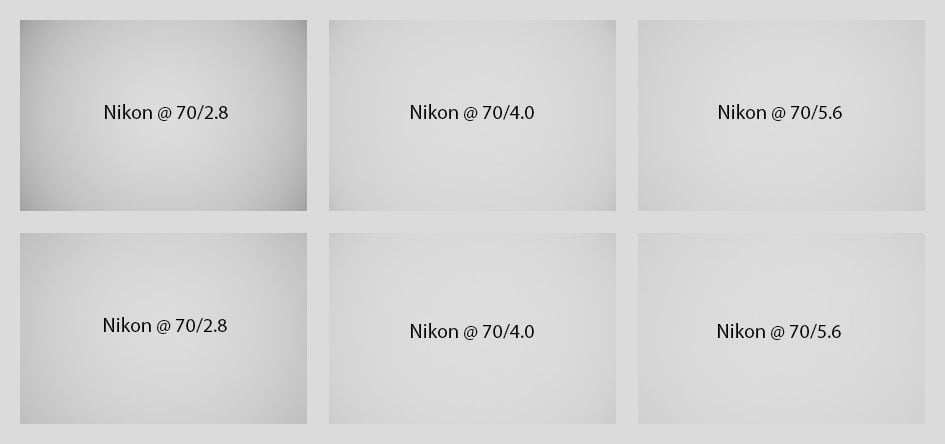
Above: Nikon Z 70-180mm f2.8 at 70mm focal length with vignette control Off (top) or Normal (bottom)
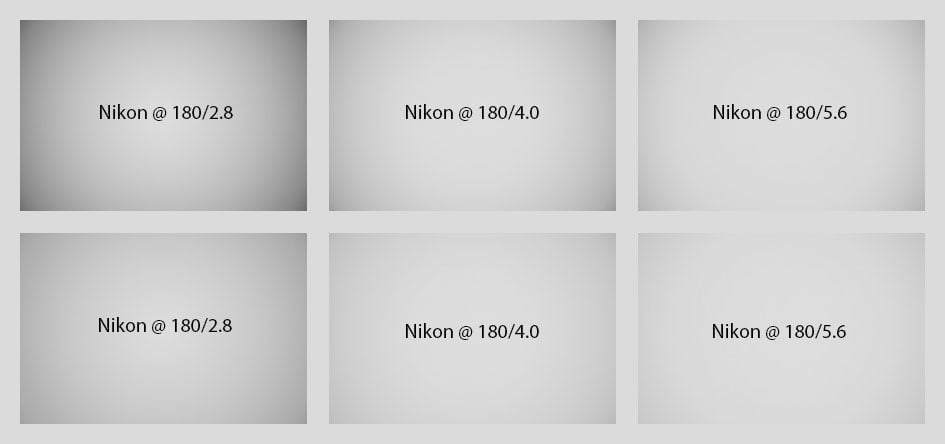
Above: Nikon Z 70-180mm f2.8 at 180mm focal length with vignette control Off (top) or Normal (bottom)
The sample images above show that even with the lens profile applied vignetting is not completely eliminated. But on the wide end it’s pretty inconspicuous. With vignette control set to Normal the extreme corners are lifted about 0.5 EV at 70mm f2.8 and 0.8 EV at 180mm f2.8. Adobe’s RAW converter automatically applies vignette control as it was set in camera but you cannot alter the setting in post-processing.
In my test the Tamron 70-180mm f2.8 Di III showed distortions of a light barrel type at 70mm focal length and very noticeable pin-cushion at 180mm (see here). With the Nikon Z 70-180mm f2.8 Auto distortion control cannot be switched off – neither in camera nor via post-processing in Lightroom, Photoshop, nor NX Studio. The corrected distortions are extremely low at 70mm as well as 180mm focal length as the following images show:
Distortions: Nikon Z 70-180mm f2.8 at 70mm (top), 180mm (bottom), auto distortion control On; click image for 4k version
Rendering of point-light sources at night-shots
Night-shots pose a different challenge for lenses as the contrast is even higher than under bright sun and point-light sources can reveal some weaknesses such as coma, haloing and colour-aberrations that do not show up as prominently in other test-shots. The 100% crops below the main image show the effect of coma in the FF-corner of the new Nikon Z 70-180mm f2.8 and the Nikon Z 70-200mm f2.8 VR S at 70mm focal length and various apertures:
Above: Nikon Z 70-180mm f2.8 at 70mm, f2.8; click image for 4k version, here for large original

Above: Nikon Z 70-180mm f2.8 at 70mm; 100% crops from the FX-corner at f2.8 (left), f4.0 (middle), f5.6 (right)

Above: Nikon Z 70-200mm f2.8 VR S at 70mm; 100% crops from the FX-corner at f2.8 (left), f4.0 (middle), f5.6 (right)
Both zoom lenses show very little coma at 70mm.
Bokeh Quality
This test is for the rendering of point-light sources in an out-of-focus background. The circle of confusion that is produced by this test is pretty indicative of Bokeh performance (in the background) and light fall-off. Ideally the out-of-focus image of the point-light is evenly lit and perfectly circular, with no “onion-rings”, and without coloration. Large aperture lenses normally produce an effect known as “cat’s eye” the further away from the optical axis the point-light is projected. This is due to optical vignetting in the lens barrel when light enters the lens from an angle.
All images were shot at the longest focal length and largest aperture. Crops are from the center, DX-corner, and FX-corner resized to make them comparable across all my reviews.
Above: Nikon Z 70-180mm f2.8 at 180mm, f2.8; click image for 4k version
Above: Nikon Z 70-180mm f2.8 at 180mm, f2.8; click image for 100% crop
Above: Nikon Z 70-180mm f2.8 at 180mm, f4.0; click image for 100% crop
Above: Nikon Z 70-180mm f2.8 at 180mm, f5.6; click image for 100% crop
Above: Nikon Z 70-180mm f2.8 at 180mm, f8.0; click image for 100% crop
The lens shows mild onion rings with some additional grainy texture in the Bokeh balls. Outlining is mild at f2.8 but gets stronger once stopped down. Coloration is very low. Looking towards the corners the Nikon Z 70-180mm f2.8 develops clear cat’s eyes effect – which is quite visible already at the DX-corner at f2.8 but greatly reduced at f5.6.
Now let’s see how this analysis of out-of-focus point-light sources translates into Bokeh-performance shooting a book-shelf. Crops are from the foreground, middle-ground, and background resized to make them comparable across all my reviews. I used the longest focal length that I could to produce a comparable shot to my other reviews which 165mm:
Above: Nikon Z 70-180mm f2.8 at 165mm, f2.8; click image for 4k version, here for large original
Above: Nikon Z 70-180mm f2.8 at 165mm, f2.8; click image for 4k version, here for large original
Above: Nikon Z 70-200mm f2.8 VR S at 165mm, f2.8; click image for 4k version, here for large original
The Nikon Z 70-180mm f2.8 clearly produces the softer Bokeh in the foreground and background than the Nikon Z 70-200mm f2.8 VR S. In the transition zone (middle-ground) the Nikon Z 70-200mm f2.8 VR S is also a bit more nervous as it tends to produce some double-contours as the following crop (now at 100%) from the same image showing the ruler confirms.

Above: Nikon Z 70-180mm f2.8 at 165mm, f2.8; click image for 4k version, here for large original

Above: Nikon Z 70-200mm f2.8 VR S at 165mm, f2.8; click image for 4k version, here for large original
Close-up performance
The new Nikon goes down to a very good 1:1.9 magnification at 70mm focal length. The following images were shot at 1:2.1 magnification where the area of sharp focus is just 76 x 50mm. The crops shown below are from 0mm, 8mm, and 12mm off the center of the sensor respectively so they only cover the DX frame:

Above: Nikon Z 70-180mm f2.8 at 70mm, f5.6; 100% crops

Above: Nikon Z 70-180mm f2.8 at 70mm, f11; 100% crops

Above: Nikon Z 70-180mm f2.8 at 70mm, f22; 100% crops
The Nikon Z 70-180mm f2.8 produces OK results in the center when stopped down to f5.6 but stays mushy at the borders of the DX image-circle even when stopped down to f11. Field-curvature is not to blame for the dismal results outside the center as sharpness did not improve when the outer crops were specifically focused.
Using the lens at 180mm focal length produces much better results – albeit at lower magnification. The following images were shot at 1:4.2 magnification where the area of sharp focus is 151 x 101mm. The crops shown below are from 0mm, 14mm, and 20mm off the center of the sensor respectively:

Above: Nikon Z 70-180mm f2.8 at 180mm, f2.8; 100% crops

Above: Nikon Z 70-180mm f2.8 at 180mm, f5.6; 100% crops

Above: Nikon Z 70-180mm f2.8 at 180mm, f11; 100% crops
Now results are very usable even at f2.8 and sharpness across a wide area of the frame is pretty good once the lens is stopped down to f5.6. So there’s a clear recommendation: For close-up shots use the Nikon Z 70-180mm f2.8 at the long end. It’s much sharper and you get a much better working distance.
Flare, ghosting, and sun-stars
Catching a strong light-source shining directly into the lens is always a risky business: it could produce strange colorful ghost-images or reduce contrast considerably through flare and glare. The appearance of flare and ghosting depends on factors like the aperture and the angle of the light hitting the lens. So to judge the proclivity of the new Nikon Z 70-180mm f2.8 for these artifacts I went through a series of well calculated shots against a strong light source to provoke glare and ghosting.
The new Nikon Z 70-180mm f2.8 produces some ghosting artifacts at the short end and overall contrast is visibly reduced through veiling glare when the light source is within the DX image-circle. Contrast improves markedly when the light-source is closer to the FX-corner:
Above: Flare and ghosting. Strong light hitting the Nikon Z 70-180mm f2.8 at 70mm, f11; click image for 4k version or here for +3 EV exposure compensation
Above: Flare and ghosting. Strong light hitting the Nikon Z 70-180mm f2.8 at 70mm, f11; click image for 4k version or here for +3 EV exposure compensation
The little bright square inset in the upper left of both images shows the respective area with an exposure compensation of +3 EV to make it easier to see which levels of black the lens renders at that point.
When the light-source is just outside the corner there is an obvious streak/flare at 70mm focal length. Fortunately this only happens in a very small area around the corners:
Above: Flare and ghosting. Strong light hitting the Nikon Z 70-180mm f2.8 at 70mm, f11; click image for 4k version or here for +3 EV exposure compensation
At 70mm focal length the lens produces nice sunstars from f8.0 onwards:

Above: Sunstars from the Nikon Z 70-180mm f2.8 at 70mm, f5.6 (left), f8.0 (right), 100% crops
Next check out my sample images!
Check prices on the Nikon Z 70-180mm f2.8 at B&H, Adorama, WEX UK or Calumet.de. Alternatively get yourself a copy of my In Camera book, an official Cameralabs T-shirt or mug, or treat me to a coffee! Thanks!








